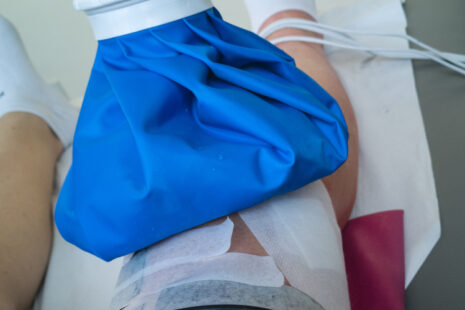Whether or not you can avoid rotator cuff surgery depends on various factors, including the severity of your injury, your pain levels, functional limitations, response to conservative treatments, and your overall health.
Here are some steps you can take to potentially avoid rotator cuff surgery or improve your condition without surgical intervention…
- Physical Therapy – Working with a physical therapist can help strengthen the muscles surrounding the shoulder joint, improve flexibility, and restore range of motion. A tailored exercise program can address specific weaknesses or imbalances contributing to your rotator cuff injury.
- Medications – Nonsteroidal anti-inflammatory drugs (NSAIDs) or corticosteroid injections may help reduce inflammation and relieve pain associated with a rotator cuff injury. These medications can be used as part of a comprehensive treatment plan prescribed by your healthcare provider.
- Rest and Modification of Activities – Avoiding activities that exacerbate your symptoms and allowing the injured shoulder to rest can help reduce inflammation and promote healing. Modify your daily activities and sports participation to avoid further aggravating the injury.
- Strengthening Exercises – Incorporate exercises targeting the rotator cuff muscles, as well as the muscles of the shoulder blade and upper back, to improve stability and function of the shoulder joint. Gradually progress these exercises under the guidance of a physical therapist or qualified fitness professional.
- Manual Therapy – Techniques such as massage, joint mobilizations, and soft tissue mobilization performed by a skilled therapist can help alleviate pain, improve flexibility, and enhance tissue healing.
- Modalities – Therapeutic modalities such as ultrasound, electrical stimulation, or cold therapy may be used to manage pain and inflammation in conjunction with other treatments.
- Activity Modification and Ergonomics – Evaluate and modify your work environment, sports technique, and daily activities to reduce strain on the shoulder and minimize the risk of further injury.
- Weight Management and Lifestyle Modifications – Maintaining a healthy weight and adopting lifestyle habits that promote overall wellness can support the body’s healing process and reduce the risk of complications.
It’s essential to work closely with your healthcare provider, including orthopedic specialists, physical therapists, and other allied health professionals, to develop a personalized treatment plan tailored to your specific needs and goals. In some cases, despite conservative measures, surgery may ultimately be recommended if conservative treatments fail to provide relief or if the injury is severe.




